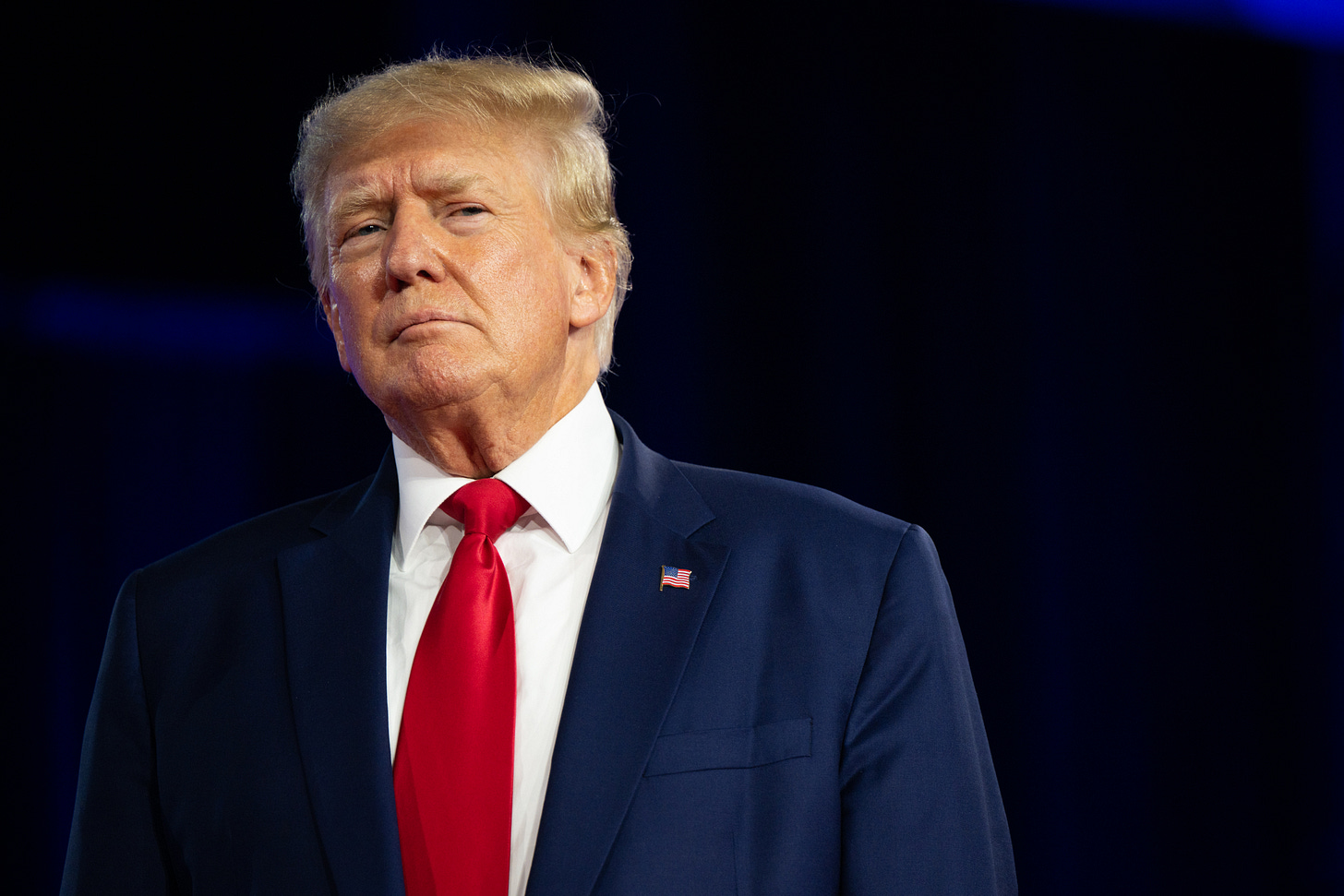Biden Must Abolish War on Terror Now or We Risk Trump's Political "Retribution" Campaign
Trump already used the institutions and authorities of the 9/11 era on Americans in 2020. What will he do with "absolute immunity"?
The day before the U.S. Supreme Court transformed the presidency into something more like an elected emperor, Donald Trump, on whose behalf the Court majority did it, was busy re-posting his intentions about how he’d use such an extraordinary gift.
Trump amplified posts from supporters on his Truth Social platform that urged him to imprison his political rivals in an example of the "retribution" he has promised them. One of them singled out the former Republican Congresswoman Liz Cheney. The New York Times wrote that the post "invoked the dictatorial imagery of a televised military tribunal, which would strip Ms. Cheney of her right to due process similar to the military courts used to prosecute terror suspects at Guantánamo Bay."
Irony would not begin to capture it if Liz Cheney finds herself on the receiving end of the War on Terror she launched her political career by championing. In 2010, Cheney, daughter of War on Terror architect Dick Cheney, co-founded an entity called Keep America Safe, with the goal of pressuring then-President Barack Obama to preserve as much of her father's security legacy as possible, which turned out to be a push on an open door. One tactic they used was to smear seven Justice Department appointees who had represented terrorism defendants as "the al-Qaeda Seven." Cheney presumably has developed more respect for due process of law in recent days.
But however much poetic justice might apply to Liz Cheney experiencing a Guantanamo Bay show trial, the point of such tribunals – and of Guantanamo Bay itself – is that there would be no actual justice. The joke would get old very fast, considering how many people could fall under Trump's promised, and now Court-sanctioned, retribution.
Joe Biden's recent debate performance may cost him reelection. More fundamentally, whoever wins the election, and future ones, is now formally beyond the reach of the law. That is the bequest of the Supreme Court deciding last week that the president enjoys "absolute immunity" for his official acts. If Biden truly means it when he says his rationale for running for president is to preserve democracy, he needs to act like he has six months to dismantle the War on Terror before Liz Cheney is merely the first into the still-open cages of Guantanamo Bay.
If you think the War on Terror no longer exists, I don't blame you. Even before Biden pulled U.S. troops out of Afghanistan, politicians in both parties spoke of turning the page on the 9/11 era. Only they never got around to dismantling the authorities, institutions, and even many operations of the War on Terror. The 2001 Authorization to Use Military Force, which gave the president the authority to wage war anywhere on earth, remains. So does the Department of Homeland Security, whose use of counterterrorism tools to crack down on migrants prefigured their use against left-wing protesters in Portland in the summer of 2020 – and which Trumpist operatives are looking to purge of anyone not affirmatively loyal to Trump. The Costs of War Project at Brown University last November tallied U.S. counterterrorism operations in 78 countries during Biden's tenure.
But far and away the most significant application of the Court's promise of absolute presidential immunity for official acts will have to do with the most consequential bequest of the War on Terror: mass surveillance.
"The Breadth of the New Definition Is Obvious"




